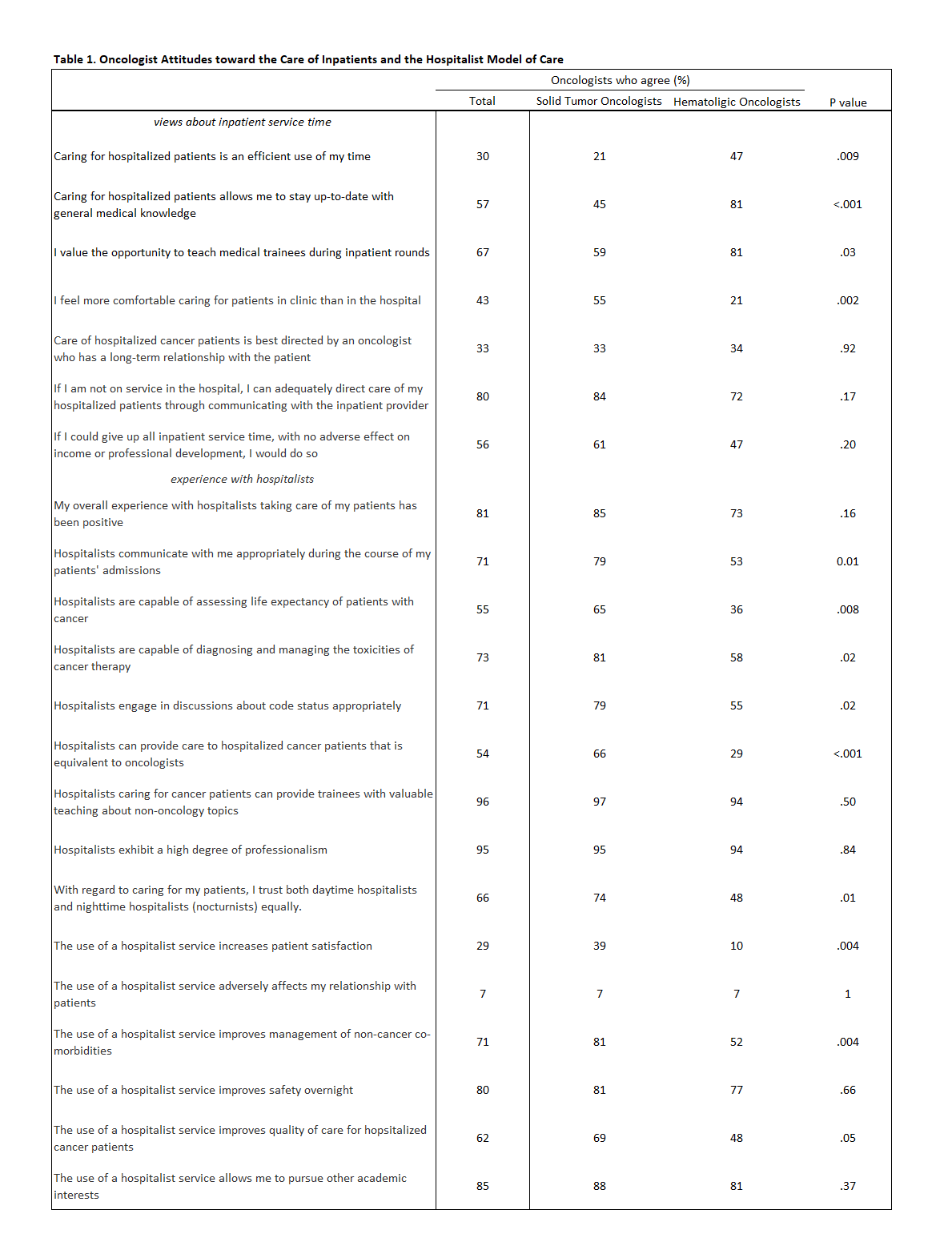Background: Hospitalists, rather than primary oncologists, are increasingly caring for hospitalized patients with cancer. High medical acuity, complex psycho-social issues, rapidly evolving cancer treatments, advanced care planning, and end-of-life care make management of this patient population especially challenging. The impact of the oncology hospitalist model of care delivery on clinical quality and oncologists’ work satisfaction is unknown.
Methods: A 28-item survey assessing oncologists’ experience with, and attitudes toward, the oncology hospitalist model was distributed to all medical oncologists practicing at Memorial Sloan Kettering Cancer Center, a single tertiary cancer center with an established hospitalist program. Quantitative and qualitative data were collected.
Results: 102 surveys were received (50% response rate). Only 30% of oncologists agreed that “caring for hospitalized patients is an efficient use of my time.” A majority (81%) reported having a positive experience with hospitalists caring for their patients and felt that hospitalists exhibit a high degree of professionalism (95%). Most agreed that hospitalists communicate appropriately (71%), can diagnose and manage toxicities of cancer therapy (73%), engage in conversation about code status appropriately (71%), provide valuable teaching (96%), and allowed oncologists to pursue other interests (85%). Differences were noted between oncologists who identified as solid tumor specialists compared with those who identified as hematologic malignancy specialists. With regard the statement: “Hospitalists can provide care to hospitalized cancer patients that is equivalent to oncologists,” responses differed between solid tumor oncologists (66% agreed) and hematologic oncologists (29% agreed, p=0.0008). Hematologic oncologists were also significantly more likely to value inpatient service time. Free text responses emphasized the need for close communication between treating oncologist and hospitalist, including during the overnight hours.
Conclusions: Oncologists at a tertiary cancer center had positive experiences with hospitalists and agreed that hospitalists provide quality care for their patients. The degree of confidence in hospitalists’ ability to manage common inpatient oncologic scenarios varied between hematologic and solid tumor oncologists; solid tumor oncologists had more confidence in their hospitalist colleagues than did hematologic oncologists.

